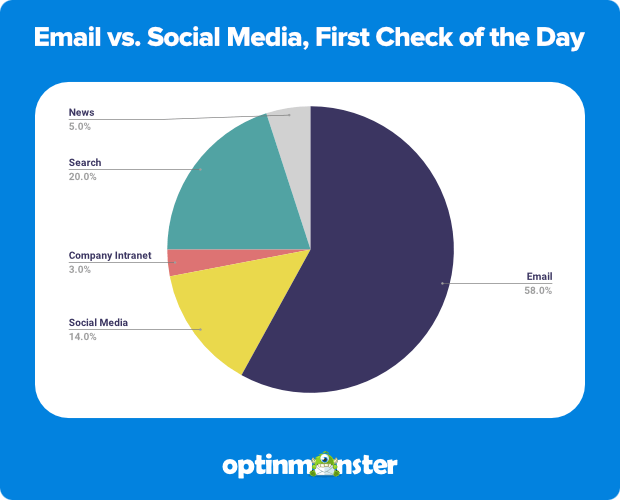In today’s fast-paced digital world, churches are discovering the importance of embracing technology to connect with their congregations and communities. Never before has church digital marketing been so relevant and effective.
With the rise of online interactions, having a strong church website is no longer just an option—it’s essential for reaching and engaging with people wherever they may be. But simply having a website isn’t enough. Churches need to be proactive in their digital outreach.
That’s where church marketing efforts come into play. By implementing effective strategies tailored to online interaction, churches can expand their reach, deepen connections, and share their message in impactful ways.
We want your church to succeed, and the fact is: you’re probably going to need to market online. Join us as we dive into the top 10 most effective online marketing strategies for you and your church.
Estimated reading time: 10 minutes
Table of contents
Top 10 Online Church Marketing Strategies
From social media engagement to email newsletters, from podcasts to personalized content, there’s a myriad of possibilities for churches to explore in their digital marketing journey. Let’s delve into some simple yet powerful strategies that can help your church thrive in the digital age.
1. Podcast and Audio Content

Podcasts and audio content have emerged as powerful tools for church marketing online. They offer a convenient and accessible way to reach audiences wherever they are. This right here is a podcast! If you’re listening to this, that means you engage with audio content in some way.
With the rise of smartphones and streaming platforms, more people are tuning in to podcasts and audio content for inspiration, learning, and entertainment. For churches, this presents an opportunity to share sermons, devotional messages, and discussions on faith-related topics in a format that resonates with listeners.
By creating engaging and relevant audio content, churches can not only connect with existing members but also attract new audiences seeking spiritual guidance. Furthermore, podcasts can contribute to church growth by fostering a sense of community and encouraging dialogue among listeners. With a simple click or tap, churches can extend their reach and make a meaningful impact on the lives of people worldwide through the power of audio content.
If this is something you’re interested in, check out our comprehensive guide to church podcasting!
2. Video Marketing
Video marketing has become a cornerstone church marketing strategy in the past several years. With the widespread popularity of platforms like YouTube and social media, videos offer a dynamic way for churches to engage with their congregations and beyond.
From sharing sermons and worship services to showcasing community outreach programs and testimonies, video content allows churches to convey their message in a compelling and visually captivating manner.
Moreover, videos have the potential to reach a wider audience and elicit greater emotional connection compared to text-based content alone.
By incorporating video marketing into your digital outreach efforts, your church can enhance your online presence. You can foster deeper connections with viewers and effectively share your faith with the world in a simple and impactful way.
3. User-Generated Content
User-generated content (UGC) is a powerful tool for churches to amplify their online presence and engage with their community in meaningful ways. By encouraging church members to share their experiences, stories, and reflections online, churches can create a sense of belonging and authenticity in the digital space.
Whether it’s photos from church events, testimonials of personal growth, or heartfelt messages of faith, UGC humanizes the church’s online presence and fosters deeper connections with both current members and prospective visitors. Moreover, UGC serves as social proof of the church’s impact and relevance. This attracts new audiences who resonate with real-life stories and experiences.
When you embrace and promote UGC as part of your church online strategy, you can empower your members to be ambassadors of their faith. This is all to spread the message of love, hope, and community far and wide.
4. SEO Optimization

SEO optimization is a vital component of any church marketing plan online. By optimizing their website for search engines, churches can increase their visibility and reach more people seeking spiritual guidance online.
This involves using relevant keywords, improving website structure and content, and earning backlinks from reputable sources. When potential visitors search for topics related to faith, community, or local churches, a well-optimized website is more likely to appear at the top of search results, driving organic traffic and attracting new members.
In fact, this very podcast is SEO optimized! All of our articles, podcasts, and videos are optimized for SEO so they have the highest chance of reaching people. Chances are, that’s how you even came across this!
By investing in SEO optimization as part of their digital marketing strategy, your church can ensure that its message is easily discoverable by those in need of spiritual support and guidance. Ultimately it is all about helping you fulfill your mission of spreading love, hope, and faith to the world.
5. Voice Search Optimization
Voice search optimization is an increasingly important aspect of digital marketing for churches, especially as more people use voice-activated devices like smartphones and smart speakers to find information.
This is just like optimizing your online content for search engines, like we talked about above. Voice search optimization is about optimizing for natural language queries. By doing this, churches can ensure that they appear in voice search results when individuals seek spiritual guidance or information about local religious services.
So what does this look like exactly? Well this involves using conversational keywords and phrases that align with common voice search queries related to faith, community, and church activities. Many churches are recognizing the importance of voice search optimization in reaching new audiences and making their message accessible to those who rely on voice-activated technology.
When you adapt your digital content to accommodate voice search trends, your church can enhance its online visibility and connect with individuals seeking spiritual support in today’s digital age.
6. Social Media Communities
Social media communities offer churches a powerful platform for building and nurturing their church community in the digital realm. By creating dedicated groups or pages on platforms like Facebook, Instagram, and Twitter, churches can foster meaningful connections, facilitate discussions, and share updates with their congregation and beyond.
These online communities serve as virtual gathering places where church members can engage with the local church family. This can look like prayer requests, sharing inspirational messages, and supporting one another in their faith journeys. Additionally, social media communities provide an avenue for local churches to reach out to their broader community. This could be inviting newcomers to participate in events, services, or even outreach programs.
By cultivating a welcoming and inclusive online presence, churches can strengthen their ties with existing members and extend the reach of their ministry to individuals seeking spiritual connection and support.
7. Live Streaming

Live streaming has become a cornerstone of online marketing for churches. This is because it enables them to extend the reach of their church services to a wider audience. In today’s digital age, most churches recognize the importance of providing accessible options for worship. Live streaming offers a convenient way for people to participate in services from anywhere with an internet connection.
By broadcasting their services live on platforms like Facebook, YouTube, or their own website, churches can accommodate those who are unable to attend in person due to distance, illness, or other reasons. Live streaming also fosters a sense of community among church members who may be unable to gather physically. It allows them to worship together and share in the spiritual experience in real-time.
Through live streaming, churches can fulfill their mission of spreading the message of faith and inclusivity to individuals worldwide, regardless of geographical boundaries.
8. Automated Email Marketing
Automated email marketing is a powerful tool for churches to streamline their church communication and connect with their congregation in a meaningful way. By setting up automated email campaigns, church leaders can send timely messages, event reminders, and inspirational content to their members without manual effort.
According to OptinMonster, email is the first thing people check in their day for 58% of users.

That’s a lot! This means that even with the rise of social media, email is still the primary way to communicate with people. And automated email marketing does just that.
It ensures that important information reaches the right people at the right time, enhancing engagement and participation in church activities. Automated emails can also be personalized based on individual interests, preferences, and engagement history, making communication more relevant and impactful.
Whether it’s welcoming new visitors, sharing sermons, or sending out weekly newsletters, automated email marketing allows churches to maintain consistent and effective communication with their members.
9. Data-Driven Marketing

Data-driven marketing is a powerful strategy for churches to understand their congregation better and tailor their online outreach efforts effectively. By analyzing data such as website traffic, social media engagement, and email open rates, churches can gain insights into the preferences and behaviors of their members.
This information allows them to create targeted campaigns and personalized content that resonate with their audience. For example, churches can use data to identify popular topics for sermons, determine the best times to post on social media, and segment their email lists for more relevant communication.
By leveraging data-driven marketing techniques, your church can enhance its online presence. You can increase engagement with your community and ultimately fulfill your mission of spreading your message of faith to a wider audience.
10. Improvement and Adaptation
Continuous improvement and adaptation are essential for effective online marketing in churches. As technology evolves and communication preferences change, churches must stay flexible and responsive to the needs of their congregation and community.
This involves regularly evaluating the performance of their digital initiatives, gathering feedback from members, and implementing changes to optimize their online presence. Whether it’s updating the church website for better usability, experimenting with new social media platforms, or refining email marketing strategies, churches must be willing to adapt and innovate to stay relevant in the digital age.
If you can embrace a culture of improvement and adaptation, your church can better connect with its audience. You can reach more people, serve your community better, and spread your message of hope.
Church Digital Marketing

In today’s digital age, churches have incredible opportunities to connect with their congregation and reach out to new members through online marketing strategies. It’s all thanks to leveraging tools like social media, email, video content, and more. With them, churches can extend their reach, deepen engagement, and connect with a wider audience.
Churches need to embrace technology and adapt their marketing efforts to meet the changing needs and preferences of their community. Whether through live streaming services, interactive social media communities, or personalized email campaigns, the goal remains the same. It is to foster a sense of belonging, provide spiritual support, and inspire positive change.
As churches continue to improve and innovate in their online marketing endeavors, they can strengthen their impact, build stronger connections, and fulfill their mission of spreading love, hope, and faith to the world. With dedication, creativity, and a commitment to serving others, churches can thrive in the digital realm and make a meaningful difference in the lives of individuals and communities everywhere.
We pray you have continued success in your online marketing. God bless!
More Resources on Online Marketing





